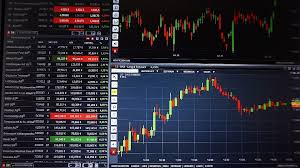
When entering the exciting world of Forex trading, one of the most critical decisions you’ll make is selecting the right trading brokers forex https://tradingplatform-hk.com/. The broker you choose will significantly impact your trading experience and success. This article aims to provide insights into the factors you must consider while choosing a Forex broker, exploring the various types of brokers, and understanding their functions in the trading environment.
The Role of Forex Brokers
Forex brokers act as intermediaries between traders and the interbank market, facilitating the buying and selling of currencies. They offer a trading platform where you can execute trades, access market data, and utilize various tools for analysis. Understanding the different roles brokers play is essential to ensure your investments are efficient and profitable.
Types of Forex Brokers
Forex brokers come in various forms, each offering unique features and services. The main types include:
1. Market Makers
Market makers provide liquidity by setting their own bid and ask prices. They can take the opposite side of your trade, meaning they may profit when you lose. A market maker’s role is to ensure that there is always a market for traders. However, their pricing may include a wider spread, which can impact profitability.
2. ECN Brokers
Electronic Communication Network (ECN) brokers connect traders directly to the market, enabling them to interact with liquidity providers. This type of broker usually charges a commission on trades instead of taking a spread. ECN brokers are known for their transparency, as they display multiple bid and ask prices from various contributors, allowing for competitive pricing.
3. STP Brokers
Straight Through Processing (STP) brokers automatically route orders to the market without manual intervention. This minimizes delays and reduces the chance of price manipulation. STP brokers usually provide tight spreads and may charge a commission or markup on the spread.
Key Factors to Consider When Choosing a Forex Broker
Selecting a Forex broker is not a decision to be taken lightly. Here are some critical factors to consider:
1. Regulation and Licensing
Ensure your broker is regulated by a reputable authority. Regulators like the FCA in the UK, NFA in the US, and ASIC in Australia impose strict standards that promote transparency and protect traders’ interests. Unregulated brokers can expose you to risks, including fraud and scams.
2. Trading Costs
Assessing trading costs, including spreads, commissions, and overnight fees, is crucial in comparing brokers. Look for a broker that offers competitive pricing while ensuring that other aspects, such as execution speed and reliability, are not compromised.
3. Trading Platform
The quality of the trading platform can significantly influence your trading experience. Ensure that the broker offers a user-friendly interface, advanced trading tools, comprehensive charting options, and the ability to execute trades swiftly. Some popular trading platforms include MetaTrader 4 (MT4), MetaTrader 5 (MT5), and proprietary platforms.
4. Customer Support
Responsive customer support is essential for resolving any issues that may arise while trading. Ensure that the broker offers multiple support channels, including live chat, email, and telephone support. Test their responsiveness before opening an account.

5. Other Features
Look for additional features such as educational resources, research tools, and demo accounts. These can enhance your trading experience and help you make informed decisions.
Understanding Trading Accounts
Forex brokers typically offer various account types based on trading styles, experience levels, and capital investments. Here’s an overview:
1. Standard Accounts
Most retail traders start with standard accounts, which usually require a minimum deposit. They provide access to all the broker’s trading features.
2. Mini and Micro Accounts
For beginners looking to trade smaller amounts, mini or micro accounts allow you to trade currency lots that are smaller than the standard size, effectively reducing your risk.
3. Islamic Accounts
For traders adhering to Islamic finance principles, many brokers offer Islamic accounts with no overnight swap fees.
Demo Accounts: A Risk-Free Option
Most brokers provide demo accounts to allow you to practice trading with virtual funds. This is an invaluable opportunity to explore the trading platform, test strategies, and build confidence before investing real money.
Trading Strategies and Techniques
Once you have selected a broker, developing a solid trading strategy is essential. Some popular techniques include:
1. Technical Analysis
This involves analyzing price charts and utilizing indicators to identify potential entry and exit points. Traders often use tools like Moving Averages, RSI, and Fibonacci retracement levels.
2. Fundamental Analysis
This approach focuses on economic reports and news events that affect currency values. Understanding economic indicators such as GDP, unemployment rates, and inflation can position you to make informed trading decisions.
3. Risk Management
Successful traders often emphasize the importance of risk management. This includes setting stop-loss orders, determining position sizes, and diversifying your trading portfolio to mitigate potential losses.
Conclusion
Choosing the right Forex trading broker can significantly shape your trading experience. By understanding the types of brokers available, key factors to consider, and developing a solid trading strategy, you can improve your chances of success in the Forex market. Always conduct thorough research and utilize resources like demo accounts before committing real capital to make informed decisions that suit your trading style. Happy trading!
